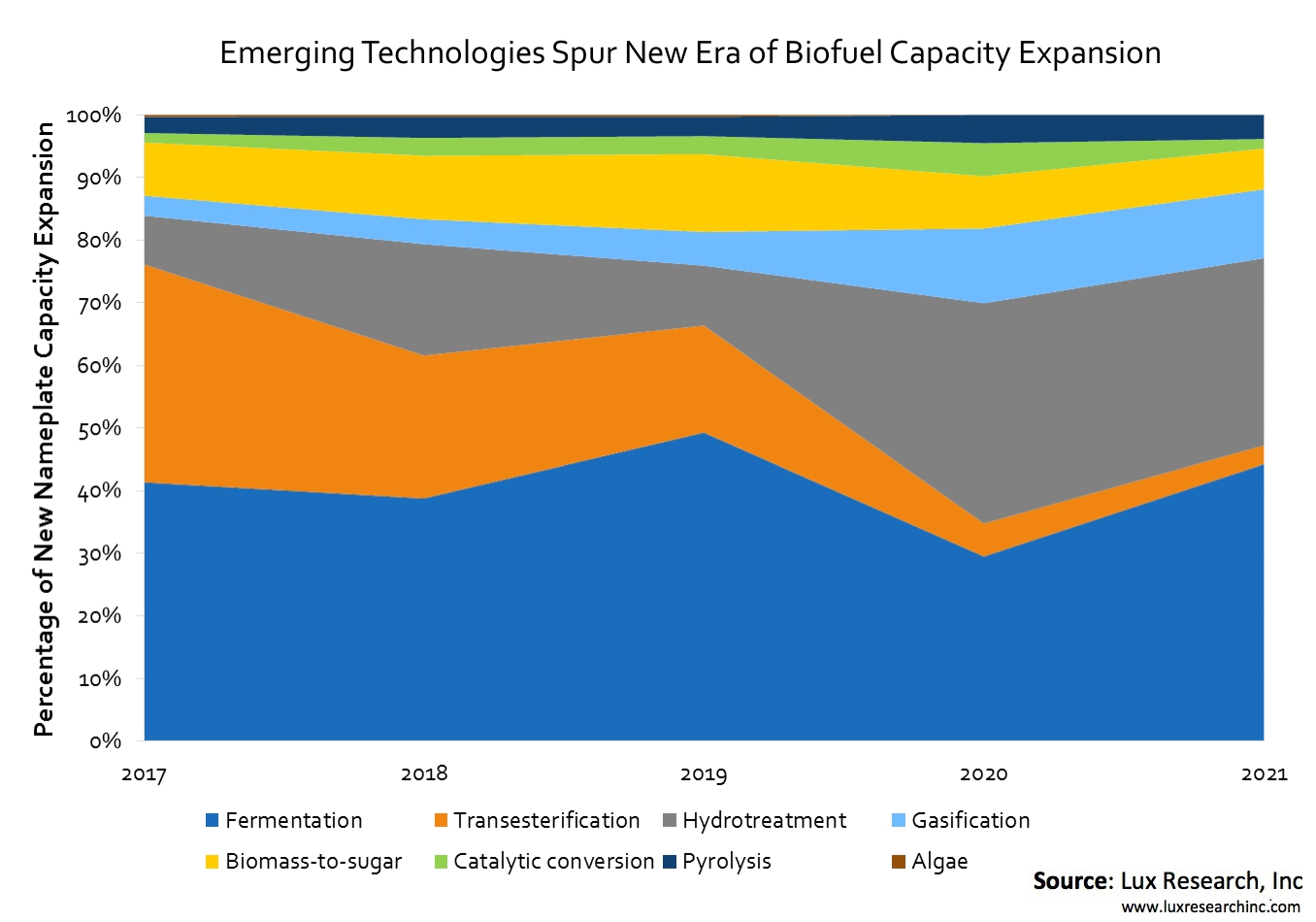
New tech behind biofuel capacity expansion
February 14, 2017
By Lux Research
Feb. 14, 2017 - New biofuel technology is finally starting to push aside traditional biofuels like first-generation biodiesel. New facilities based on non-food feedstocks and producing novel fuels account for over half of new capacity deployment for the first time in the biofuel industry's history, according to Lux Research. However, overall output will grow at a slower pace to 67 billion gallons a year (BGY) in 2022, from 59 BGY in 2016.

“A new era of technology commercialization has brought the global biofuels industry to the cusp of a tipping point, as new facilities target low-carbon and high-performance drop-in biofuels,” said Runeel Daliah, Lux Research Associate and lead author of the report titled, “Biofuels Outlook 2022: The Dawn of a New Era in Global Biofuel Capacity Expansion.”
“With many of the technologies capable of producing advanced biofuels still at demonstration scale, the next five years will be critical as companies raise capital, establish value chain security and produce commercial volumes as these projects come online,” he added.
Lux Research analysts quantified the commercial deployment of new technologies in the global biofuels industry using a database of nearly 2,000 facilities from 1,461 companies in 90 countries with nameplate capacity data through 2022. Among their findings:
Growth slows but advanced biofuels rise. The global biofuels industry will grow at a slower 2.2% annual rate to 67 BGY of nameplate capacity by 2022. First-generation biofuels, which hold a 91.5% market share, will continue to dominate but will lose nearly 6% of market share, as advanced biofuels see rapid growth, nearly doubling capacity to 9.6 BGY.
Biodiesel begins to fade. Second-generation biodiesel makes up 65% of the 5.0 BGY advanced biofuel market today, but is projected to lose 26% market share by 2022 due to the rapid growth of low-carbon and high-performance drop-in biofuels such as renewable diesel.
Thermochemical and catalytic processes usher in new era. Emerging thermochemical and catalytic technologies will surpass bioconversion processes to make up over half of the new capacity deployment for the first time in the biofuel industry’s history.
The report, titled “Biofuels Outlook 2022: The Dawn of a New Era in Global Biofuel Capacity Expansion,” is part of the Lux Research Alternative Fuels Intelligence service.
Lux Research provides strategic advice and ongoing intelligence for emerging technologies. Leaders in business, finance and government rely on us to help them make informed strategic decisions. Through our unique research approach focused on primary research and our extensive global network, we deliver insight, connections and competitive advantage to our clients. Visit www.luxresearchinc.com for more information.
Print this page